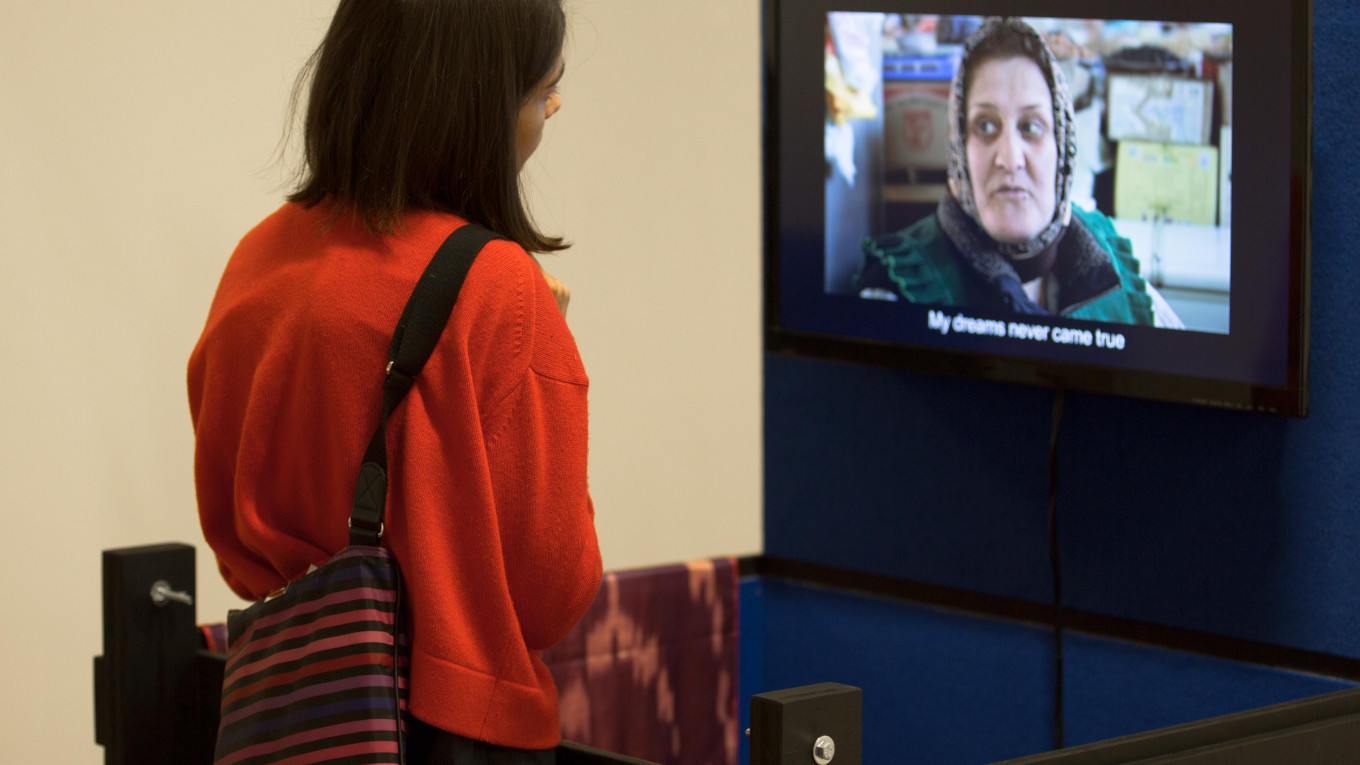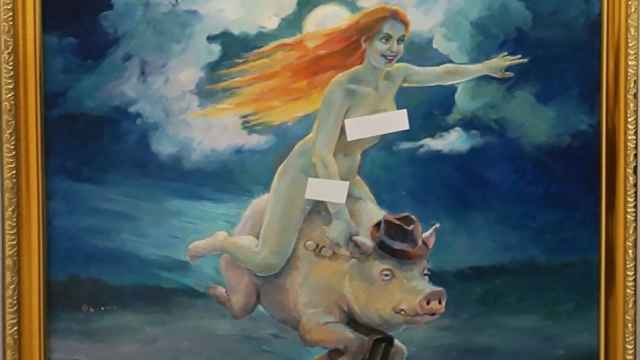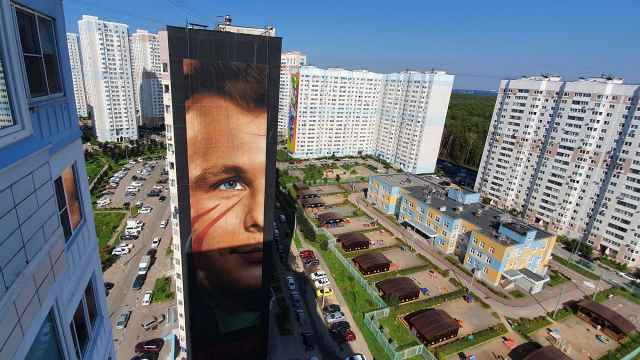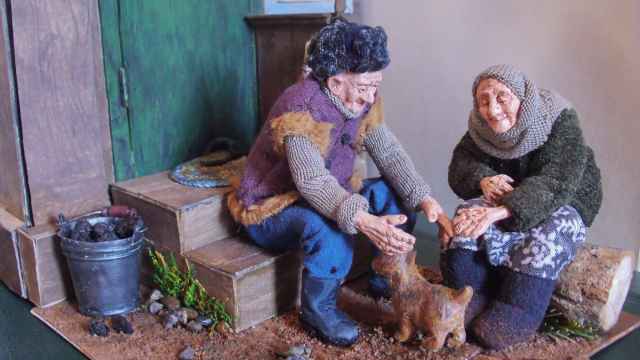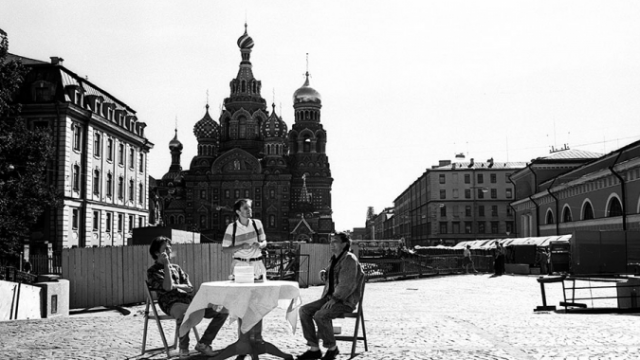“The Border,” an exhibition organized by the Goethe Institute being shown at the Tsereteli Art Gallery, explores the geographical and cultural border between Europe and Asia. It features twenty three works created by young artists from 16 cities and 11 countries.
The head of the Goethe cultural program, Astrid Wege, came up with the idea for the exhibition. “Some parts of Russia are in Eastern Europe while others are in Central Asia,” she said in an interview to The Moscow Times. “Now everything has changed on the territory of the former Soviet Union. How do people look at these changes? What are the cultural borders they experience in their daily lives?”
The works on display suggest some answers to these questions. A series of photographs, “The Edges of Gilea,” explores three natural “sectors” in the south of Ukraine. Created by Anastasia Zhyvkova, the work emphasizes the blurred lines of geographical borders.
Another artist, Saule Dyussenbina, reinvented the meaning of sacred symbols in different cultures. She designed wallpaper with traditional Kazakh ornamental patterns specially for the show.
But the works are not only — and not mainly — commentary on political and economic issues. They are, first of all, conceptual meditations on social and personal borders. Artist Alina Kopytsa explored the borders between personal and public information in her work “The Wedding Dress.” She printed personal correspondence with her future husband spanning five years on a real wedding dress. “Where Dogs Run” — an art group from Yekaterinburg — approached the problem of temporal borders. Their mechanical theater “Phobia of the Other” shows how a smallpox vaccination scar — a stigma for people who grew up in the Soviet Union — literally turns people into a different biological species.
Because the artists work in a wide variety of genres, the theme was covered comprehensively: the exhibition space is filled with photographs, objects, performance footage and videos. “One can see how different cultural legacies affect the artists' work in many ways. But borders are not a given or set forever. They can be negotiated,” Wege said. Indeed, the very process of creation for the show involved crossing borders. Wege stressed in a statement that “one of the most beautiful results of the project was the chance to create a laboratory in Dortmund and bring the young artists together.” Creating an art platform for cultural exchange was another goal of the program and a major step forward in crossing borders.
After Moscow the show will tour to seven cities, including the capitals of Ukraine, Belarus and Georgia in 2017, along with Dortmund. In 2018 the project will continue its journey to Central Asia. The Moscow part of the tour will run until Feb. 26.
Tsereteli Art Gallery. 19 Ulitsa Prechistenka. Metro Kropotkinskaya. eng.rah.ru
A Message from The Moscow Times:
Dear readers,
We are facing unprecedented challenges. Russia's Prosecutor General's Office has designated The Moscow Times as an "undesirable" organization, criminalizing our work and putting our staff at risk of prosecution. This follows our earlier unjust labeling as a "foreign agent."
These actions are direct attempts to silence independent journalism in Russia. The authorities claim our work "discredits the decisions of the Russian leadership." We see things differently: we strive to provide accurate, unbiased reporting on Russia.
We, the journalists of The Moscow Times, refuse to be silenced. But to continue our work, we need your help.
Your support, no matter how small, makes a world of difference. If you can, please support us monthly starting from just $2. It's quick to set up, and every contribution makes a significant impact.
By supporting The Moscow Times, you're defending open, independent journalism in the face of repression. Thank you for standing with us.
Remind me later.


